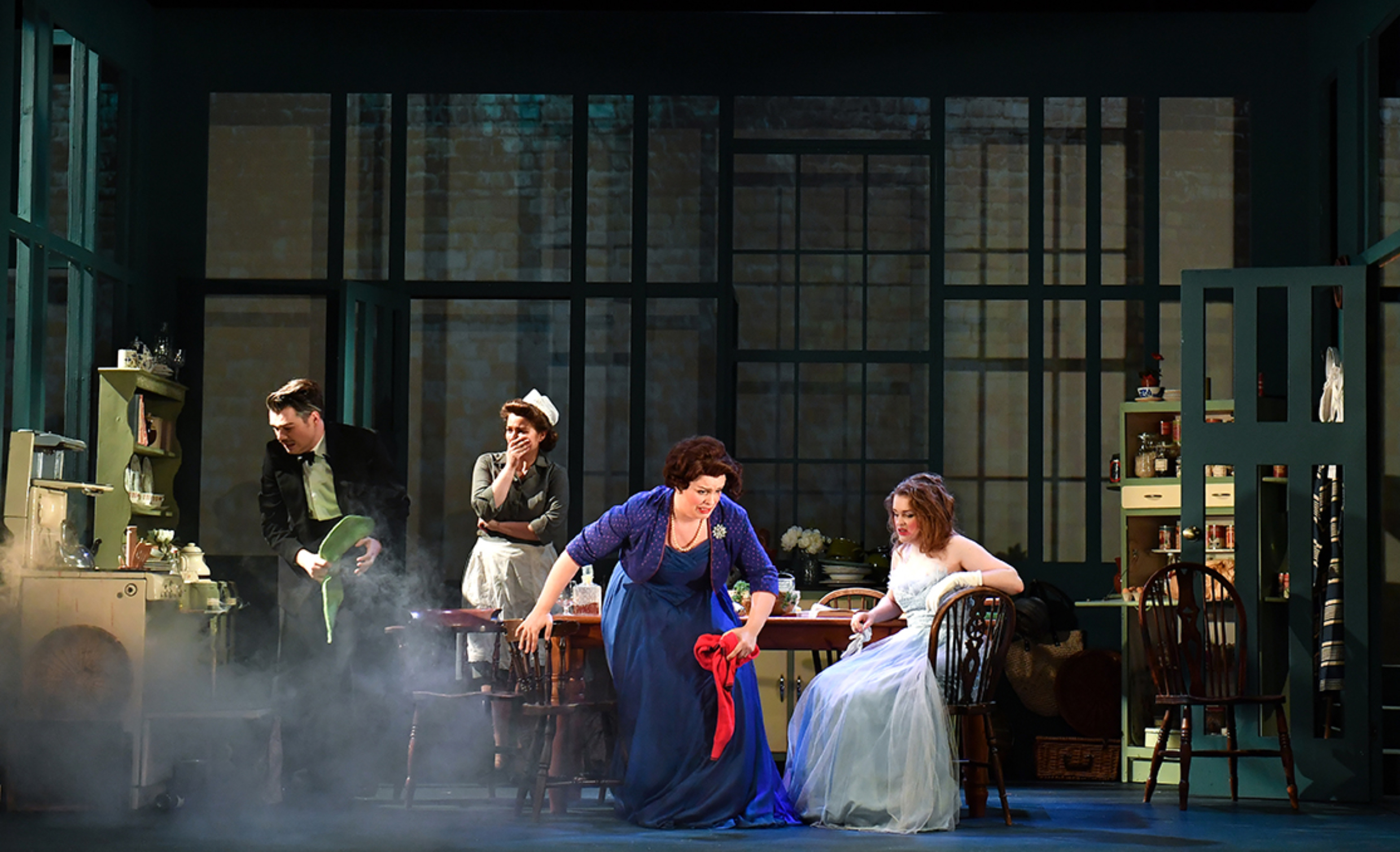Lennox Berkeley and Leonard Bernstein operas at the RCM
Julian Berkeley writes about a double bill at the Royal College of Music in 2020.
The Royal College of Music Opera Studio presented four performances of Berkeley’s one-act opera A Dinner Engagement in July 2019, coupled with Leonard Bernstein’s Trouble in Tahiti. The pairing of double bills presents difficulties for opera houses and music colleges alike, but in this case it would be hard to think of a better combination – indeed given that the two works seem such obvious natural companions it’s very odd this successful formula has not been universally adopted. On the contrary, it appears that this was the first time Berkeley and Bernstein had shared the stage.

The Director, Stephen Unwin, in a perceptive programme note, remarked on how Britain, emerging from the post-war austerity and rationing which had made it such a bleak place, ‘is reflected in Lennox Berkeley and Paul Dehn’s delightful A Dinner Engagement (1954), where the bankrupt Lord and Lady Dunmow are left without any servants, deep in debt and desperate to marry off their daughter to a well-heeled – if wildly eccentric – continental aristocratic family ... For all its comic genius, this one-act kitchen opera catches many of the contradictions of a country being torn apart by the new social order that had emerged in 1945’.
The scale of the RCM’s Britten Theatre is perfectly suited to chamber opera, providing an intimate ambience for audience involvement. Even so, I found the use of surtitles helpful, rather than a distraction, and picked up lines which had been lost on me previously, in spite of having attended so many performances over several decades.
A vigorous cast, conducted by Vicente Chavarria (for the performance on 1 July), took to the period piece with energy and conviction, playing along with its humour without any tendency to send it up. We heard a strong and well-balanced ensemble overall, and excellent singing and characterisation from Ffion Edwards and Guy Elliott as the improbable newly-engaged couple.

While the Dunmows are feeling the pinch, Sam and Dinah, the unhappily married couple of Trouble in Tahiti are more than comfortable in material terms, but their affluence simply accentuates their personal dissatisfaction. Stephen Unwin, who also directed this production, comments that ‘While the war had bankrupted Britain, it had supercharged the United States. Indeed, if any decade stands for the fulfilment of a materialist version of the American dream it was the 1950s ... Any work of art stands in an ambivalent relationship to its time, but these two remarkable one-act operas speak powerfully of an era whose awkward contradictions and murky depths can still strike a chord in our own uneasy times.’ Bernstein makes brilliant use of a swing vocal trio as a Greek chorus to set the mood and underscore the irony of the couple’s predicament.
The success of the Berkeley/Bernstein double bill and the polished production should encourage others to adopt this winning combination. Meanwhile, the Royal Birmingham Conservatoire has gone a step further by adopting the original Berkeley/Paul Dehn double-bill of A Dinner Engagement coupled with their much later collaboration, Castaway (based on the sixth book of Homer’s Odyssey). Performances are scheduled for 11-13 June 2020 in the Crescent Theatre, Birmingham.
A further spur to future productions of A Dinner Engagement will undoubtedly be the crisp new edition of the full orchestral score published by Chester Music in November 2019, with assistance from the LBS. It is now possible for anyone across the globe to examine instantly the full score on-line and I would urge all readers of the Journal to have a look at the score on the attractive and easily-navigable issuu site. The Society has always been aware of the difficulties faced by performers when confronted by poorly reproduced scores and orchestral parts and there is no question that, with severe limitations on rehearsal time, quality of printed material can make all the difference for conductors and ensembles selecting repertoire for forthcoming performance. The new edition of A Dinner Engagement is a real advance on earlier editions and it is hoped that this will be the first of a planned group of Chester Music/LBS publications.